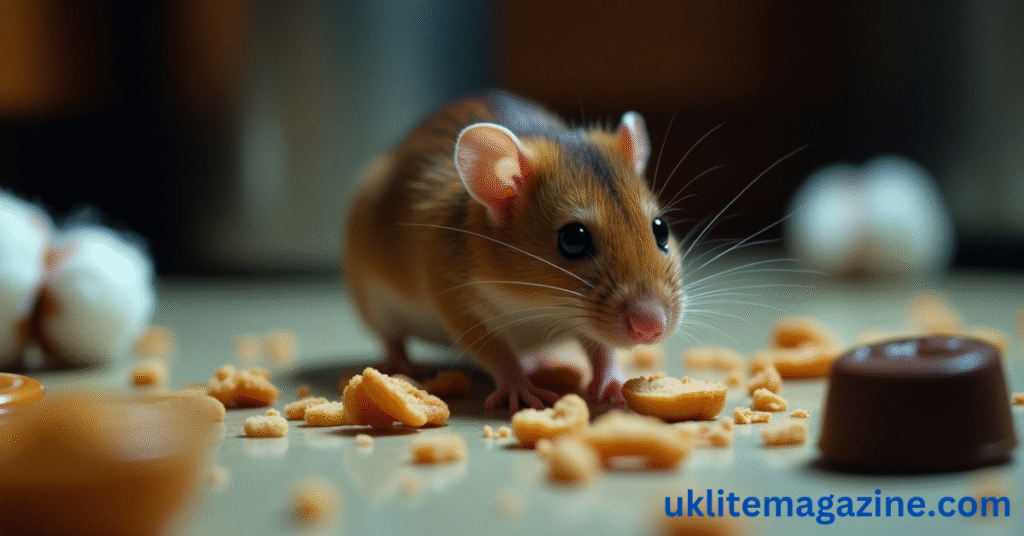Mice are tiny, curious creatures that can sneak into homes and cause trouble. Understanding what mice eat is essential for both prevention and control. Whether you’re trying to keep them out or get rid of them, knowing which foods attract or repel them can make a big difference. This article breaks down their diet, favorite treats, and natural deterrents — all in simple terms.
What Do Mice Typically Eat?
Mice are omnivores, which means they eat both plant-based and animal-based foods. However, they prefer high-carb, high-fat foods. Their diet often depends on where they live — indoors or outdoors.
Common Foods Mice Eat:
-
Grains (rice, oats, wheat)
-
Seeds and nuts
-
Fruits and vegetables
-
Bread and pasta
-
Meat scraps
-
Pet food
-
Sweets (especially chocolate and candy)
They also chew on non-food items like paper and fabric for nesting material, not because they eat it.
Why Do Mice Enter Homes?
Mice usually enter homes in search of food, water, and shelter. Once they find an easy food source, they’ll keep coming back. Crumbs, garbage, and poorly stored food are all invitations for them to settle in.
Foods That Attract Mice
Some foods are especially irresistible to mice. Knowing these can help you avoid leaving them out or help you bait traps effectively.
| Food Item | Why It Attracts Mice |
|---|---|
| Peanut Butter | High fat and protein; strong smell |
| Cheese | High in fat and protein (contrary to myths, not their favorite) |
| Grains (rice, oats) | Easy to chew and digest |
| Chocolate and Candy | High sugar content |
| Bread and Pasta | High in carbs, easy to store in nests |
| Nuts and Seeds | Rich in oils and protein |
| Pet Food | Protein-rich, left out in bowls |
Foods and Smells That Repel Mice
Not all foods attract mice. Some natural substances can actually repel them due to strong scents or taste.
| Repellent Item | How It Works |
|---|---|
| Peppermint Oil | Strong menthol scent deters mice |
| Garlic | Strong odor mice avoid |
| Onions | Overpowering smell |
| Hot Sauce/Chili | Spicy smell and taste repels them |
| Vinegar | Acidic scent mice dislike |
| Cloves | Pungent aroma works as a deterrent |
| Ammonia | Smells like predator urine |
Tip: Soak cotton balls in peppermint oil or vinegar and place them near suspected entry points.
Can Human Food Waste Attract Mice?
Yes, absolutely. Mice can live off of crumbs, leftovers, and garbage. They’re not picky. Even small food particles in the sink or on the floor are enough to keep mice around.
Avoid These Habits:
-
Leaving food out overnight
-
Keeping trash cans uncovered
-
Not wiping down counters
-
Storing food in thin plastic or paper packaging
Mouse Behavior Around Food
-
Storage: Mice often hoard food in hidden spots like drawers or behind appliances.
-
Chewing: Their teeth never stop growing, so they chew on everything — food or not.
-
Smell-driven: Mice have a strong sense of smell, which helps them find food easily.
Conclusion
Mice will eat almost anything, but they especially love high-calorie foods like peanut butter, chocolate, and grains. On the other hand, strong-smelling items like peppermint, vinegar, and chili can drive them away. Knowing what attracts or repels mice can help you control infestations naturally and effectively.
To protect your home:
-
Store food in sealed containers
-
Clean up crumbs and spills
-
Use natural repellents around entry points
With this knowledge, you can outsmart these little intruders and keep your space mouse-free.
Frequently Asked Questions (FAQs)
Q1: Do mice really like cheese?
Answer: While popular in cartoons, cheese isn’t their top choice. They prefer peanut butter, grains, and sweets.
Q2: What smell do mice hate the most?
Answer: Peppermint oil is one of the most effective natural repellents due to its strong menthol scent.
Q3: Can mice eat pet food?
Answer: Yes, dry pet food is high in protein and fat, which makes it appealing to mice.
Q4: What food is best for baiting a mouse trap?
Answer: Peanut butter, chocolate, or sunflower seeds work well because of their scent and taste.
Q5: Do dirty kitchens attract mice?
Answer: Yes. Even small crumbs, garbage, or food spills can attract mice into your home.

